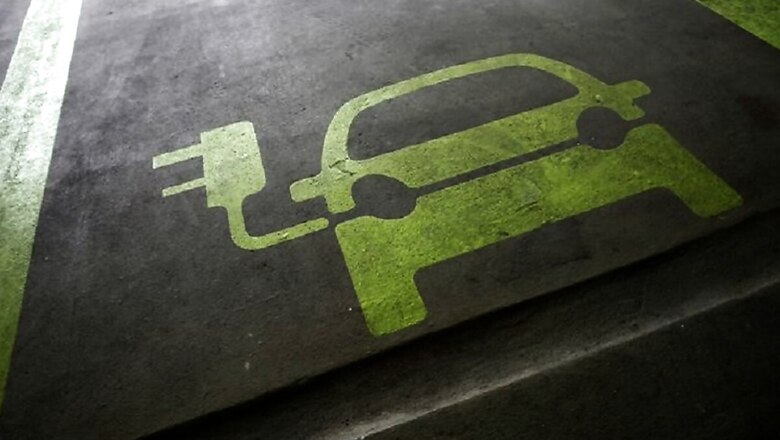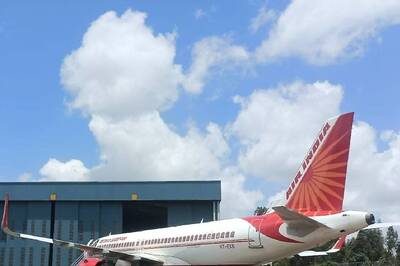
views
MaaS, or Mobility as a Service, allows information sharing across different modes of transport to allow for seamless planning, booking, and payment of transport services. For example, mobile applications offered in few European cities provide full spectrum of mobility services: bus transport providers, taxi companies, and metro network. Such application allows users to use a single interface for travelling between Point A and Point B, using the mode of their choice. More importantly, the aggregated travel patterns can enable planners to better understand and manage the traffic demands and usage patterns across various modes. This aggregation is the driving force behind the penultimate vision of a MaaS solution: public, or sharing, modes of transport providing the same agility as private modes.
An emerging extension of MaaS is eMaaS, or electric Mobility as a Service, which takes the MaaS concept even further and aims to ensure that the journey is “eco-friendly" along with being shared. eMaaS introduces new stakeholders – EMS (Electric Mobility Solutions handling the Technology and Infrastructure part) and SEMS (Shared Electric Mobility Services – Peer to Peer, Mass Transit, For-hire services) in the MaaS paradigm. This convergence can truly revolutionize the way we travel and move beyond the MaaS goal of reducing private vehicle ridership.
While these technologies are exciting, we must also remember that they are nascent in the Indian market. Cab aggregators like Ola and Uber are often considered to be India’s most popular transportation apps with billion plus bookings every year . However, these aggregators are yet to integrate their services with other transport modes – an essential requirement of MaaS based solution. Cities like Mumbai are planning to launch a single payment card useable across local trains, bus, monorail and metro, and provide easier access to 1.5 million plus commuters . However, data sharing with other players is yet to happen – an essential requirement for achieving the MaaS vision.
In this context, the vision of providing eMaaS related services to the Indian consumer is both a formidable challenge and an exciting opportunity. We must remember that the eMaaS concept is still an evolving model across most parts of the globe. Moreover, it is essential to have both EMV and EMS-related services integrated with MaaS related services to offer a complete solution to the user. However, as discussed earlier, even the MaaS associated services are a work in progress in the Indian market. While the National Common Mobility Card can offer integrated payment services, there is currently no integrated travel booking platform, and the user has to install multiple applications on their phone for individual services, which is contrary to the philosophy of user-centricity.
However, there are emerging trends that may expedite this transition. Governments are pushing adoption of electric vehicles, with the central government adopting the FAME II policy to increase subsidy support for EVs. Different state governments are also offering reduced to zero registration charges, as also advocating various non-fiscal incentives for electric vehicles. Most electric vehicles are connected vehicles capable of transmitting their location details and state of charge (SoC) elements to a central system. These details are the basic building blocks for any MaaS system and can go a long way in ensuring the best services to the end consumer and all service providers.
An essential requirement for the above is to define standards and platforms that ensure easy availability of data to all service providers. For example, while the location and SoC details are available with Vehicle OEMs, OEMs are hesitant to share the same with other providers to protect their copyrighted information. An effective strategy to handle these issues may be a bare minimum set of data required to be shared on an open platform. This open platform also has to ensure that the data transmitted does not contain any consumer sensitive details. The open platform also needs to allow other stakeholders like Charging Stations and utility companies to understand the consumer pattern and plan accordingly. While the platform can be either with a public forum or a joint enterprise, it needs to ensure that the underlying data is accessible to all service providers with the least cost and effort.
We essentially need to democratize the data and open the market for entrepreneurs while having a regulatory framework with essential safeguards. This will also be a boon to the upcoming EV industry within the country. For example, users often hesitate to adopt EV due to range anxiety and information on charging station availability and status. The data platform created for the eMaaS platform will mitigate this issue and provide impetus to EV adoption in the country. Furthermore, the EV market in India is at an inflection point, and it would be much easier and cheaper to define standards that ensure future-readiness and offer an integrated and environment friendly solution to the Indian consumer.
Read all the Latest News, Breaking News and Coronavirus News here.



















Comments
0 comment